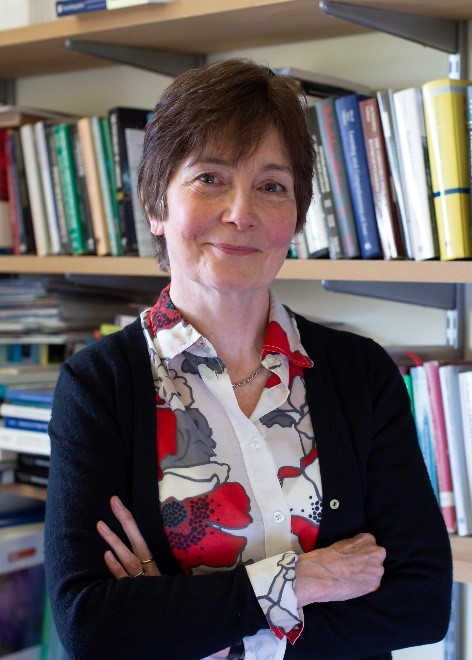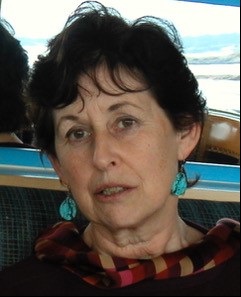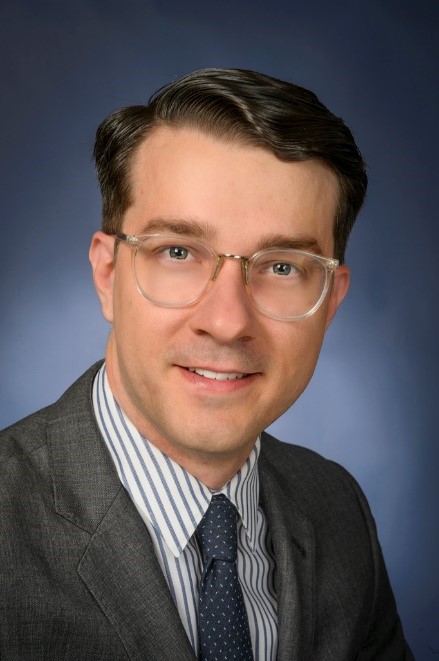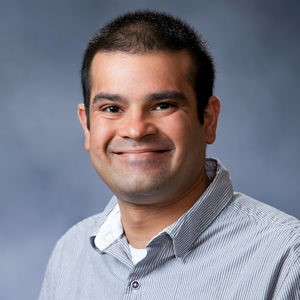2019 Distinguished Scientific Contribution Award
Jane Oakhill, University of Sussex
 Jane Oakhill is a Professor of Experimental Psychology at the University of Sussex, UK. In a research career spanning more than 40 years, she has worked on various research projects in cognitive psychology, but has always maintained a research interest in children’s reading comprehension (in particular, individual differences). Jane has published widely (including more than 100 refereed journal articles and numerous book chapters, and has co-authored or edited nine books). Her books in the area of reading and comprehension include: Becoming a Skilled Reader, with Alan Garnham, Children's Problems in Text Comprehension, with Nicola Yuill, Reading Comprehension Difficulties: Processes and Remediation, with Cesare Cornoldi, Reading development and the teaching of reading: A psychological perspective, with Roger Beard, Children’s comprehension problems in oral and written language, with Kate Cain and, most recently, Understanding and Teaching Reading Comprehension with Kate Cain and Carsten Elbro. In 1991, she was awarded the British Psychological Society's Spearman Medal for outstanding published work in the first decade of her career as a psychologist. More recently, Jane has won awards for research impact. Jane is an active member of the Society for Text and Discourse, and is currently a member of the governing board of the society, and of the editorial board of Discourse Processes.
Jane Oakhill is a Professor of Experimental Psychology at the University of Sussex, UK. In a research career spanning more than 40 years, she has worked on various research projects in cognitive psychology, but has always maintained a research interest in children’s reading comprehension (in particular, individual differences). Jane has published widely (including more than 100 refereed journal articles and numerous book chapters, and has co-authored or edited nine books). Her books in the area of reading and comprehension include: Becoming a Skilled Reader, with Alan Garnham, Children's Problems in Text Comprehension, with Nicola Yuill, Reading Comprehension Difficulties: Processes and Remediation, with Cesare Cornoldi, Reading development and the teaching of reading: A psychological perspective, with Roger Beard, Children’s comprehension problems in oral and written language, with Kate Cain and, most recently, Understanding and Teaching Reading Comprehension with Kate Cain and Carsten Elbro. In 1991, she was awarded the British Psychological Society's Spearman Medal for outstanding published work in the first decade of her career as a psychologist. More recently, Jane has won awards for research impact. Jane is an active member of the Society for Text and Discourse, and is currently a member of the governing board of the society, and of the editorial board of Discourse Processes.
Children’s Reading Comprehension: Losing the Thread
A substantial amount of research has focused on children’s reading development and reading problems but, in comparison, there has been relatively little research into children’s reading comprehension. A large part of my research career has been dedicated to finding out more about children’s reading comprehension: both development and difficulties. The overarching aim of this research has been to explore the skills and cognitive processes that support children’s understanding of text, with the ultimate aim of providing support for the development of, and remediation of, problems with reading comprehension. In this talk, I will reflect on the various hypotheses I have entertained and tested over time and will consider what avenues of investigation still need further exploration. I will end by considering the implications of these findings for helping children to develop and improve their comprehension skills.
The ST&D 2019 Distinguished Scientific Contribution Award Address will take place on Tuesday, July 9, 1:30-2:30 PM in Tishman Auditorium (U100); Introductary remarks by...
Previous Recipients of the Distinguished Scientific Contribution Award
| 2018 | Murray Singer | 2012 | Marcel Adam Just |
| 2017 | Susan R. Goldman | 2011 | Simon Garrod & Anthony Sanford |
| 2016 | Paul van den Broek | 2010 | Arthur C. Graesser |
| 2015 | Jerome L. Meyers & Edward J. O'Brien | 2009 | Herbert Clark |
| 2014 | Charles A. Perfetti | 2008 | Walter Kintsch |
| 2013 | Morton Ann Gernsbacher |
Distinguished Scientific Contributions Award Committee
Joe Magliano (chair), Kate Bohn-Gettler, Susan Goldman, Gale Sinatra, & Murray Singer
The Award honors scholars who have made outstanding scientific contributions to the study of discourse processing and text analysis. The following criteria will be considered in conferring the Award: (1) Sustained outstanding research that has enhanced the scientific understanding of discourse processing and text analysis, (2) Contributions to the mentorship of students, postdoctoral fellows, and colleagues in the field of text and discourse, and (3) Meritorious contributions to the advancement of the field through leadership as a theorist or spokesperson for the discipline.
2019 ST&D Keynote Address
Eve V. Clark, Stanford University
 Eve V. Clark (PhD, Linguistics, Edinburgh) is the Richard Lyman Professor in Humanities and Professor of Linguistics at Stanford University. She was educated in Britain and France, and from 1969-1971, she worked on Joseph Greenberg’s project on Language Universals, then from 1971-2017 taught at Stanford, with two years leave at University College London (UK) and four years at the MPI for Psycholinguistics (NL). She is a Fellow of the American Association for the Advancement of Science, the Association of Psychological Science, the Cognitive Science Society, and the Linguistic Society of America, as well as a Guggenheim Fellow and Foreign Member of the Royal Netherlands Academy of Sciences (Koninklijke Nederlandse Akad-emie van Wetenschappen). She has published numerous experimental and observational articles on semantics, pragmatics, and cross-linguistic comparisons in the acquisition of a first language. Her books include Psychology and Language (1977, with H. H. Clark), The Ontogenesis of Meaning (1979), The Acquisition of Romance, with Special Reference to French (1985), The Lexicon in Acquisition (1993), First Language Acquisition (2003; third edition, 2016), and Language in Children (2017).
Eve V. Clark (PhD, Linguistics, Edinburgh) is the Richard Lyman Professor in Humanities and Professor of Linguistics at Stanford University. She was educated in Britain and France, and from 1969-1971, she worked on Joseph Greenberg’s project on Language Universals, then from 1971-2017 taught at Stanford, with two years leave at University College London (UK) and four years at the MPI for Psycholinguistics (NL). She is a Fellow of the American Association for the Advancement of Science, the Association of Psychological Science, the Cognitive Science Society, and the Linguistic Society of America, as well as a Guggenheim Fellow and Foreign Member of the Royal Netherlands Academy of Sciences (Koninklijke Nederlandse Akad-emie van Wetenschappen). She has published numerous experimental and observational articles on semantics, pragmatics, and cross-linguistic comparisons in the acquisition of a first language. Her books include Psychology and Language (1977, with H. H. Clark), The Ontogenesis of Meaning (1979), The Acquisition of Romance, with Special Reference to French (1985), The Lexicon in Acquisition (1993), First Language Acquisition (2003; third edition, 2016), and Language in Children (2017).
How Conversational Repair Contributes to the Acquisition of Language
In this talk, I examine how repairs in adult-child conversations guides the children’s acquisition of their first language. Children make self-repairs (repairs to their own utterances) from as early as age one. For instance, they repair their own pronunciations, such as fa to fan, based on their auditory representations in memory of the target words they are attempting (fan). For their part, adults systematically check on whether they have understood the children they are talking with. They do so with requests for clarification that are general (mh?, what?) or specific (you hid what?) and with reformulations of what the child appeared to mean (you want water?). Children typically respond to requests for clarification with self-repairs in the next turn. They also use the reformulations as a source of feedback. The contrast between their utterance and the adult’s reformulation helps them identify the error being targeted (negative feedback), and they use the reformulation itself as a model for the conventional version of their less-than-ideal utterance (positive feedback). I describe the use of reformulations in conversations with children acquiring English and French in repairing their errors in phonology, morphology, lexicon, and syntax. I also present two studies of case studies of how reformulations inform children, one of homophonous French verb forms and the other of early Hebrew verbs. I argue that the process of repair plays an essential role in the acquisition of a first language.
The 2019 ST&D Keynote Address will take place on Wednesday, July 10, 1:30-2:30 PM in Tishman Auditorium (U100). Introductary remarks by...
|
|
2019 Elected Member of the American Academy of Arts and Sciences
Susan R. Goldman, University of Illinois at Chicago

Susan Goldman is a distinguished professor of psychology and education, and co-director of the Learning Sciences Research Institute at the University of Illinois, Chicago. In a career spanning more than 40 years, Susan has made important theoretical and methodological contributions to the fields of text comprehension, individual differences, and education. She is also one of the founders of the field of learning sciences. Her work spans basic research, applied educational research, and computational modeling. Susan has published over 220 articles and book chapters. She has co-edited five books, including the seminal Handbook of Discourse Processes. In addition to her research advancements, Susan has made substantial and impactful contributions through her service and mentorship. Her journal editing activities include service as associate editor for five journals, among them the Journal of Educational Psychology and Discourse Processes. She was a member of the first ST&D Governing Board in 1992, and served as Chair from 2000-2007. She was President of the International Society of the Learning Sciences (2011), is a Fellow of AERA and ST&D, and is a member of the National Academy of Education. In 2017, Susan was awarded the ST&D Distinguished Scientific Contribution award.
Founded in 1780, the American Academy of Arts and Sciences honors excellence and convenes leaders from every field of human endeavor to examine new ideas, address issues of importance to the nation and the world, and work together “to cultivate every art and science which may tend to advance the interest, honor, dignity, and happiness of a free, independent, and virtuous people.”
2019 Tom Trabasso Young Investigator Award
Jason L.G. Braasch, University of Memphis

Jason L. G. Braasch is an Assistant Professor in the Department of Psychology at the University of Memphis and has been selected to receive the 2019 Tom Trabasso Young Investigator Award, which recognizes exceptional and innovative contributions to discourse research and superior promise as a leader in the field. Dr. Braasch was recognized for his important contributions to our understanding of how individuals reconcile conflicts between their knowledge and new information. His research explores how to make it less likely that such information will be rejected. Dr. Braasch’s work is critical in this current time of science mistrust and skepticism among members of the public. Dr. Braasch joined the Department of Psychology in 2013 from the University of Oslo, Norway. He is on the editorial board of Contemporary Educational Psychology and Discourse Processes. He is also a member of the American Educational Research Association (AERA) and the Society for Text and Discourse (ST&D). Dr. Braasch recently served as co-editor of the Handbook of Multiple Source Use, which was published by Routledge in 2018.
The 2019 Tom Trabasso Young Investigator Award Address will be presented at the 30th annual meeting of the Society for Text & Discourse, in Atlanta, USA, July , 2020.
2018 Tom Trabasso Young Investigator Award Address
Sidney D’Mello, University of Colorado Boulder
 Sidney D’Mello (PhD in Computer Science) is an Associate Professor in the Institute of Cognitive Science and Department of Computer Science at the University of Colorado Boulder. He is interested in the dynamic interplay between cognition and emotion while individuals and groups engage in complex real-world tasks. He applies insights gleaned from this basic research program to develop intelligent technologies that help people achieve to their fullest potential by coordinating what they think and feel with what they know and do. D’Mello has co-edited six books and published over 220 journal papers, book chapters, and conference proceedings (13 of these have received awards). His work has been funded by numerous grants and he serves(d) as associate editor for four journals, on the editorial boards for six others, and has played leader-ship roles in three professional organizations.
Sidney D’Mello (PhD in Computer Science) is an Associate Professor in the Institute of Cognitive Science and Department of Computer Science at the University of Colorado Boulder. He is interested in the dynamic interplay between cognition and emotion while individuals and groups engage in complex real-world tasks. He applies insights gleaned from this basic research program to develop intelligent technologies that help people achieve to their fullest potential by coordinating what they think and feel with what they know and do. D’Mello has co-edited six books and published over 220 journal papers, book chapters, and conference proceedings (13 of these have received awards). His work has been funded by numerous grants and he serves(d) as associate editor for four journals, on the editorial boards for six others, and has played leader-ship roles in three professional organizations.
|
The Necessity, Opportunity, and Promise of Multimodal Computational Analyses of Discourse It is generally accepted that computational analyses of discourse can complement other analytical approaches including think-alouds, code and count, and experimental methods. I suggest that their utility extends beyond a mere complementary role. They serve a necessary role when data is too large for manual analysis, an opportunistic role by addressing questions that are beyond the purview of traditional methods, and a promissory role in facilitating change when fully-automated models drive real-time interventions and/or reflective review. Multimodal computational approaches provide further benefits by affording analysis of disparate constructs emerging across multiple types of discourse in diverse contexts. To illustrate, I discuss studies that use linguistic, paralinguistic, behavioral, and physiological signals for the analysis of rhetorical, expository, pedagogical, dialogic, and collaborative discourse collected in individual, small group, multi-party, and human-computer interactions in the lab and in the wild with the goal of understanding and/or facilitating cognitive, noncognitive, socio-affective-cognitive, and life outcomes. The 2018 Tom Trabasso Young Investigator Award Address will take place on Thursday, July 11, 1:30-2:30 PM in Tishman Auditorium (U100). Introductary remarks by...
|
Previous Recipients of the Tom Trabasso Young Investigator Award
| 2018 | Sidney D'Mello | 2013 | Tobias Richter |
| 2017 | Catherine Bohn-Gettler | 2012 | Panayiota Kendeou |
| 2016 | Raymond Mar | 2011 | Chantel Prat |
| 2015 | Scott Crossley | 2010 | David N. Rapp |
| 2014 | Katherine Rawson | 2009 | Michael Kaschak |
Tom Trabasso Young Investigator Award Committee
David N. Rapp (chair), M. Anne Britt, Johanna Kaakinen, & Chantel Prat
This award goes to an outstanding young investigator who embodies Tom Trabasso’s spirit of mentoring young scholars and creating a supportive context in our Society. Recipients have shown exceptional and innovative contributions to discourse research and demonstrated superior promise as leaders in the field.
2019 Jason Albrecht Outstanding Young Scholar Award
Brianna L. Yamasaki, Vanderbilt University
Modeling Individual Differences in Second-Language Reading Skill using Language Experience, Executive Attention, and Cross-Linguistic Interactions (with Chantel S. Prat)
The current study used structural equation modeling to investigate the novel hypothesis that second-language reading is constrained by cross-linguistic interactions, and that such interactions vary as a function of relative experience in one’s languages and executive attention. Consistent with our predictions, the results demonstrated that increased cross-linguistic interactions contributed to poorer second-language reading skill, and that greater relative experience in one’s first-language and poorer executive attention contributed to increased cross-linguistic interactions. This talk is in Session 7A: Reading Comprehension Processes, Wednesday, July 10th, 8:30-10:00 AM in UL104.
Previous Recipients of the Jason Albrecht Outstanding Young Scholar Award
| 2018 | Shelley Feuer | 2007 | Heather Fergusun |
| 2017 | Karyn Higgs | 2006 | Heather H. Mitchell |
| 2016 | Juliane Richter | 2005 | Not awarded |
| 2015 | Angela Nyhout | 2004 | Amelie Teisserenc |
| 2014 | Stephen Briner | 2003 | Sabine Gueraud |
| 2013 | Emily R. Smith | 2002 | David N. Rapp |
| 2012 | Jesse R. Sparks | 2001 | Max Louwerse |
| 2011 | Mike Mensink | 2000 | Steve Frisson |
| 2010 | Jennifer J. Stiegler | 1999 | David Robertson |
| 2009 | Michele Levine | 1998 | Herb Colston |
| 2008 | Patrick Jeuniaux | 1997 | Marie-Pilar Quintana |
Jason Albrecht Outstanding Young Scholar Award Committee
Johanna Kaakinen (Chair), Jason Braasch, Joe Magliano, & Chantel Pratt (Recused)
The Jason Albrecht Outstanding Young Scholar Award honors the memory of Jason Albrecht, a promising young text and discourse researcher who passed away in 1997. The award recognizes an outstanding paper based on a doctoral dissertation. The Award honors scholars who have made outstanding scientific contributions to the study of discourse processing and text analysis. The following criteria will be considered in conferring the Award: (1) Sustained outstanding research that has enhanced the scientific understanding of discourse processing and text analysis, (2) Contributions to the mentorship of students, postdoctoral fellows, and colleagues in the field of text and discourse, and (3) Meritorious contributions to the advancement of the field through leadership as a theorist or spokesperson for the discipline.
2019 Outstanding Student Paper Awards
Daniel P. Feller, Georgia State University
Relations between Component Reading Skills, Inferences, and Comprehension Performance in Community College Readers Analysis (with Joe Magliano, Tenaha O’Reilly, and John Sabatini)
College success is, in part, contingent upon the extent that students are prepared to read for college. Many students who are underprepared are referred to supplemental programs to support the reading literacy challenges they face. This study was conducted to better understand these challenges. The study explored the relations between foundational literacy skills (word and sentence processing) and inference generation on reading tasks that vary in the type of comprehension demanded. This talk is in Session 11B: Reading Comprehension Assessment, Wednesday, July 10th, 2:45-4:15PM in UL105.
Kole Norberg, University of Pittsburgh
Can Online Search Strategies Predict Learning from Internet Sources? A Correlational Analysis (with Byeong-Young Cho, Scott Fraundorf, and Hyeju Han)
We examined how online search strategies predict learning and in turn are predicted by metacognitive knowledge and skills. We quantified information location strategies used by adolescents when researching a socio-scientific issue. Visiting more relevant sites and fewer irrelevant sites predicted content-knowledge learning and student-authored critical question quality. Meanwhile, the ability to monitor content understanding predicted number of sites visited. These findings suggest assimilation of information across sites and metacognitive monitoring are vital digital literacy skills. This talk is in Session 17B: Multiple Text Comprehension and Integration, Thursday, July 11th, 2:45-4:15PM in UL105.
Previous Recipients of the Outstanding Student Paper Award
| 2018 | Alison Jane Martingano | 2007 | Not awarded |
| 2017 | Reese Butterfuss | 2006 | Fabrice Cauchard |
| 2016 | Cristopher Ryan Williams | 2005 | Johann Ari Larusson |
| 2015 | Laura K. Allen | 2004 | David Havas |
| 2014 | David Markowitz | 2003 | Carol Madden |
| 2013 | Johanna Maier | 2002 | Heather H. Mitchell |
| 2012 | Alexandra List | 2001 | Tobias Richter |
| 2011 | Emily R. Smith | 2000 | Johanna Kaakinen & Rob Stanfield |
| 2010 | Kris Liu | 1999 | Michelle L. Gregory |
| 2009 | Mike Mensink | 1998 | Ken Samuel |
| 2008 | Nick Duran | 1997 | Andreas Schramm |
Outstanding Student Paper Award Committee
Johanna Kaakinen (Chair), Jason Braasch, Joe Magliano (Recused), & Chantel Pratt
The Outstanding Student Paper Award recognizes quality in work that is predominantly that of a graduate student. Accordingly, the student must be first author on the paper.
2019 ST&D Student Travel Awards
One goal of the Society for Text and Discourse is to support and mentor young scientists as they begin their research careers. To further this goal, in 2015 the Society for Text & Discourse established the Student Travel Fund to make our conference accessible to students who need to travel but have difficulty obtaining funding. The following student members have received travel awards to enable their attendance and participation at the 2019 meeting of the Society for Text & Discourse.
| Sana Alnajjar, University of Illinois Chicago | Steffen Gottschling, University of Tübingen |
| Britta Bresina, University of Minnesota | Minkyung Kim, Georgia State University |
| Amy de Bruïne, Leiden University | Imikan Nkopuruk, Tai Solarin University of Education |
| Amalia Donovan, Northwestern University | Nikita Salovich, Northwestern University |
| Sarah Dygert, Mississippi State University | Blaine Tomkins, DePaul University |
| Gillian Francey, Lancaster University | Andreas Wertgen, University of Würzburg |
Student Travel Award Committee
Joe Magliano (Chair), Jason Braasch, & Gale Sinatra
2019 ST&D Mentorship Program
The Society for Text and Discourse is proud to announce our first Mentorship Program cohort for advanced graduate students, postdoctoral researchers, and junior faculty. This program is intended to provide career support, development, and networking opportunities for promising early-career members of ST&D. Mentees are paired with a mid-career or senior mentor to discuss scholarship, handling new roles as a faculty member, finding an academic position and/or navigating tenure, funding, teaching, and much more.
| Mentee | Mentor |
|---|---|
| Reese Butterfuss, University of Minnesota | M. Anne Britt, Northern Illinois University |
| Meghan M. Davidson, University of Kansas | Danielle McNamara, Arizona State University |
| Rachel Dickler, Rutgers University | Jenny Wiley, University of Illinois Chicago |
| Sarah Dygert, Mississippi State University | W. Sid Horton, Northwestern University |
| Daniel P. Feller, Georgia State University | David N. Rapp, Northwestern University |
| Allison J. Jaeger, St. John’s University (NY) | Catherine Bohn-Gettler, College of St. Benedict-St. John’s University (MN) |
| Heather Ness, Georgia State University | Art Graesser, University of Memphis |
| Marloes L. van Moort, Leiden University | Panayiota Kendeou, University of Minnesota |
Mentorship Program Committee
Kate Bohn-Gettler (Chair), Joe Magliano, Danielle McNamara, & Mike Mensink